Ultralight backpackers have a reputation for being elitist snobs. Why? Probably because so much of the ultralight style is based on gear. And guess what? Most ultralight gear is EXPENSIVE.
It’s hard not to think of someone as a snob when they can shell out $500+ for what’s essentially a fancy tarp (especially when those same people start criticizing you for carrying an affordable shelter which happens to be 6oz heavier…).
But ultralight gear does not have to be expensive. I’ve compiled a list of cheap ultralight gear that will get your base weight down to 11lbs or under without costing more than $600 total.
Note: This is NOT meant to be a shopping list (that would be stupid: everyone has different gear requirements). Rather, I want to show how UL backpacking can be done for cheap.
Everything Can Be Bought Cheaper Secondhand
Buying secondhand gear isn’t just cheaper, but also better for the environment. A lot of major retailers even have secondhand areas now, like REI’s Used Gear section.
The Breakdown
Note about price and weight calculations: Since there are multiple options in each category, the cost/weight in the table are based on the average of them. If you choose the absolute cheapest items, the total gear cost is approximately $356. If you choose the absolute lightest items on the list, you can easily get the total weight down to 135oz.
| Base Weight Items (Critical) | Cost | Weight |
|---|---|---|
| Backpack | $93 | 37oz |
| Tent | $149 | 50.1oz |
| Sleeping Bag | $146 | 33oz |
| Sleeping Pad | $39 | 12.6oz |
| Total | $427 | 132.7oz |
| Other Critical Items | Cost | Weight |
| Stove and Fuel | $20 | 6.6oz |
| Pot | $17.45 | 4.1oz |
| Utensil | $2 | 0.3oz |
| First Aid Kit | $15 | 2oz |
| Headlamp | $20 | 1oz |
| Water treatment | $20 | 2oz |
| Water bottles | $0 | 0.9oz |
| Hygiene (toothbrush, hand sanitizer, feminine items, TP, etc). | $5 | 2.5oz |
| Pack cover/liner | $0.5 | 0.3oz |
| Phone | / | 6oz |
| Navigation (paper map/compass) | $10 | 0.9oz |
| Carried clothing | $35 | 16oz |
| Lighter | $1 | 0.4oz |
| Total | $145.95 | 43oz |
| Grand Total | $572.95 | 175.7oz |
List of Cheap Ultralight Gear
Backpacks
Unfortunately, there aren’t too many options when it comes to cheap ultralight backpacks. The cheap ones simply can’t handle much abuse. The ones listed below are all very affordable and still durable. Since many UL packs don’t have covers, you can use a turkey-sized oven bag as a pack liner. They cost about 50 cents and weigh almost nothing.
Top Budget Options:
- Naturehike 40+5 UL Pack: 43.7oz
- 3F QiDian: 30oz
- Granite Gear Crown 2: 37.8oz
Also Read: Best Budget-Friendly Ultralight Backpacks
Tents
If you are willing/able to use a trekking pole tent, then the cost of an UL tent becomes even cheaper. Likewise, you can also get the cost down a lot by switching to a tarp setup. Of course, there are other options too, like hammock camping. I’m only going to include freestanding ultralight tents here though.
Top Budget Options:
- Naturehike Cloudup 1P: 52.8oz
- Naturehike Vik 1P: 36.8oz
- Kelty Late Start 1P: 60oz
- 3F Floating Cloud 1: 53oz
Also read: Best Cheap Ultralight Tents
Sleeping Pads
Here’s where you can really save a lot of money and weight on your sleep setup. But of course it can also mean you end up really uncomfortable. When I was in my 20s, I didn’t mind sleeping on a thin foam pad. Now that I’m older, I want something more comfortable. I also became a colder sleeper in my late 30s, so need more R-value.
Top Budget Options:
- Foam sleeping pad: 8oz
- Sleepingo UL (air pad): 14.5oz
- Ryno Tuff (air pad): 14oz
- Therm-a-Rest Z Lite (CCF): 14oz
Also Read: Best Budget-Friendly Ultralight Sleeping Pads
Sleeping Bags
If you are backpacking in warm weather, it’s easy to find a cheap ultralight sleeping bag. But, assuming that it will probably get cold at some point, I’m only going to include sleeping bags rated to 32F (comfort rating around 45F).
Top Budget Options:
- Marmot Trestles Elite Eco 30: 30oz
- Klymit KSB: 30oz
- Hyke and Byke Shavano 38oz
Also Read: Best Lightweight Sleeping Bags on a Budget
Stove and Fuel
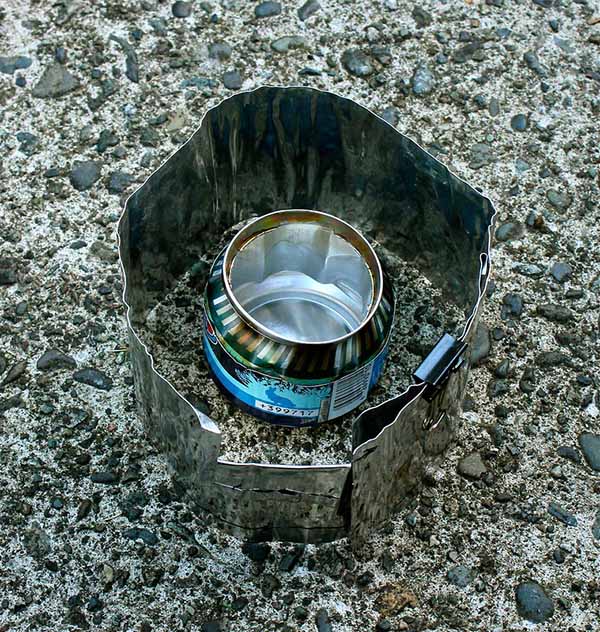
This one is trickier to calculate, especially since there’s a ton of debate about whether an alcohol stove or gas stove is lighter in weight. When it comes to cost though, an alcohol stove is the budget-friendly option. It really doesn’t get cheaper than a DIY cat food stove. But, if you prefer a gas canister stove (or there’s a burn ban so you can’t use an alcohol stove), the BRS-3000T is a good budget pick.
Note: If you use the cold-soak method for preparing meals, you don’t have to bring a pot at all.
Top Budget Options:
- DIY alcohol stove + bottle (1oz) and 4oz of fuel: 5.5oz
- BSR-3000T UL stove + 100g gas canister: 7oz
Cook Pot
If cheap UL is your main goal, then aluminum is the way to go. True, non-anodized aluminum gets bent very easily. But my super cheap aluminum pots have survived dozens of trips (even with my not-at-all-careful kids). A lot of backpackers use grease pots instead of a pot, which is essentially just an aluminum pot with a strainer lid.
If you need something more durable, there are a few cheap titanium UL pots on Aliexpress. But you will be limited to a really small size.
Best Budget Options:
- Lixada Titanium Pot (0.8 quarts): 7oz
- Stanco Grease Strainer (1 quart) + Pot Lifter: 3.5oz + 1.5oz
- GSI Outdoors Anodized Aluminum Pot (0.625 quarts): 2.6oz
- IMUSA Aluminum Mug (0.7 quarts): 2.4oz
- Snow Peak Titanium Bowl (0.63 quarts) + Pot Lifter: 1.9oz + 1.5oz
Other Crucial Items:
- Utensil: Even well-known brands have cheap UL utensils for about $2. Or just use a takeout plastic utensil.
- First Aid Kit: Build your own. It will probably cost about $10 to $25 and you can easily get the weight down to 2oz.
- Headlamp: A lot of people love the Nitecore Thumb as a headlamp since it weighs less than 1oz and is cheap. On longer trips though, you’ll need a way to recharge it – which means adding an UL power bank to your weight and expenses.
- Water Treatment: Long-term, you can’t really beat the Sawyer Mini for cost since the filter never needs to be replaced. Weight-wise, water treatment tablets are good for shorter trips.
- Water Bottle: Recycled plastic water bottles instead of some fancy bottle
- Potty trowel: You can use one of your tent stakes for this, which means zero extra carried weight or cost.
- Navigation: A paper map is basically free and costs nothing. If you use this and a compass, then you don’t have to worry about your phone dying so (probably) no need to bring a power bank.
- Packed Clothing: Almost all of my backpacking clothing comes from secondhand stores. I even scored a pair of $350 hiking pants for $10 once! It’s really not hard to save money here. You can also easily get the weight down to 8oz (or less) by being smart about your layering system and letting socks dry while you hike.
“I’m Too Poor to Buy Cheap Gear” (aka “buy once, cry once”)
There’s a reason why lots of UL gear is so expensive: it has to be made out of good-quality materials to be light yet durable. A lot of the cheap ultralight gear simply isn’t up to this same quality. It won’t last as long, which means you have to buy new gear much faster.
In the long run, it’s usually better to pay more for pricier gear which will last. If you do want to buy cheap ultralight gear, make sure you only buy from tried-and-tested cheap brands. Avoid no-name brands without real reviews.
Know Where to Spend Your Money
Never try to save money (or weight) on things that will make or break your trip. For example, if you won’t want to sleep on a thin foam pad (not getting a good night’s sleep can definitely ruin your trip!), then be prepared to shell out the $$$ for an expensive UL pad.
Also Know Where to Save Money
There is some backpacking gear which really doesn’t matter as much. For these items, you can get away with using cheap or even free items.
For example, don’t pay for a fancy water bottle when a plastic bottle from your recycling bin will work just as well. Also don’t pay for a fancy pack liner when you can use a turkey-sized oven bag which costs $0.50.
Note: One of the easiest ways to save money on backpacking is to dehydrate your own meals. Seriously, it’s stupid to pay $12 or more for packaged backpacking meals which are essentially just rice and beans anyway! Read my guide to dehydrating backpacking meals. Or check out my book for even more advice and tons of UL recipes. 🙂
Use Skills to Replace Gear
The best way to reduce weight without spending a single dollar is to learn skills. One example would be learning how to sleep under a cheap tarp instead of an expensive freestanding UL tent. Or learning how to pick the perfect campsite so you can sleep comfortably even on a thin pad. Or learning to read a paper map so you don’t need to use GPS navigation…
How do you save money on ultralight gear? Let us know in the comments section below.
Sources:
https://www.backpacker.com/gear/does-ultralight-backpacking-have-an-elitism-problem/,
https://www.reddit.com/r/Ultralight/comments/kzehen/a_6_pound_56_oz_ultralight_3_season_budget_gear/,
https://www.reddit.com/r/Ultralight/comments/4od0mt/comment/d4cajkv/?context=10000
Image credits:
“Backpacks lined up at the camp store. Ro” (CC BY-SA 2.0) by Joetography LLC,
“st6” (CC BY-NC 2.0) by vikapproved


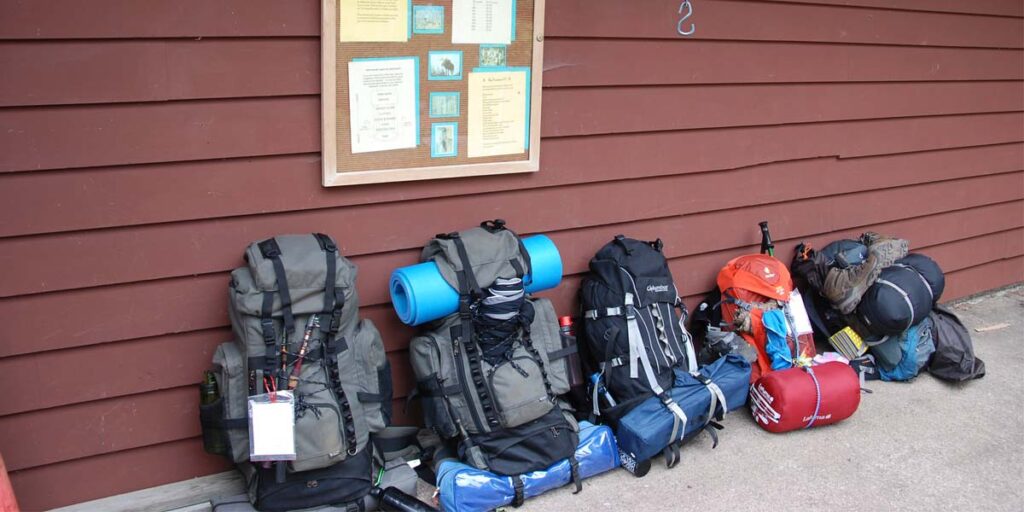
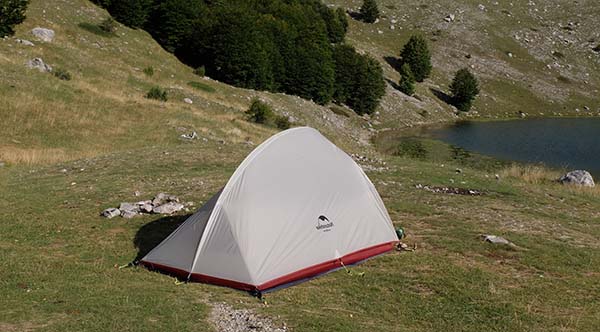
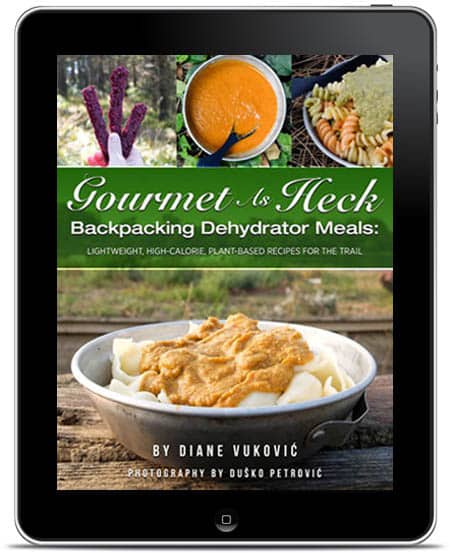
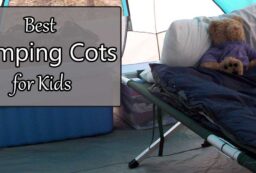
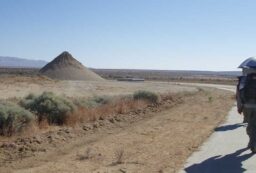
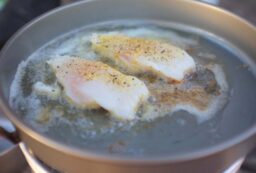
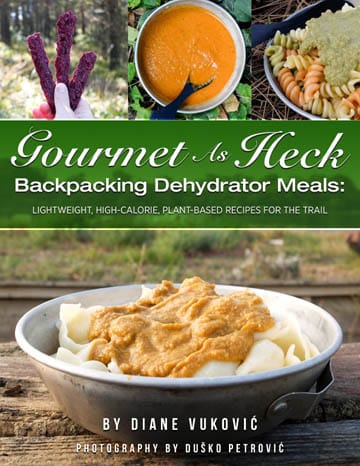
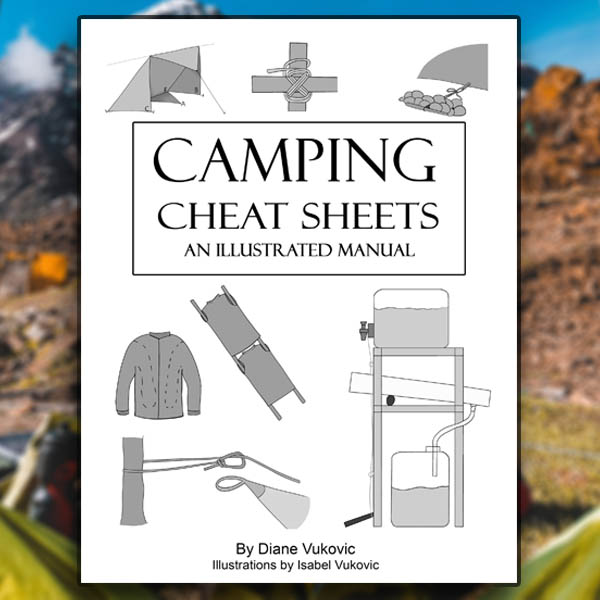
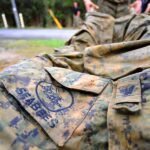

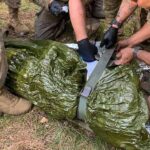


Post your comments